History
Researchers at RAND and the University of South Carolina co-developed GTO initially to address substance abuse prevention. Subsequently, the model has been applied to a range of areas, such as teen pregnancy (Ten Steps to Promoting Science-Based Approaches [PSBA] to Teen Pregnancy Prevention Using GTO) and youth development (GTO with Developmental Assets). Research has demonstrated that agencies that use GTO are better able to carry out their services than those who do not. It is a framework that transcends a particular field, making it an ideal systematic framework for program implementation.
Healthy Teen Network introduced Centers for Disease Control and Prevention, Division of Reproductive Health (CDC DRH) Project Officers to GTO and played a catalytic role in persuading DRH to adopt GTO as its teen pregnancy prevention program implementation science framework. GTO offered a value-added component to integrate evidence-based approaches, improve quality, and strengthen capacity of all grantees and their local partners.
Whether you’re using GTO or another framework, you’ll probably find many similarities. GTO isn’t truly something new…you’re probably already doing many of the steps…rather, GTO is one example of a framework that provides an organized, clear, and systematic approach for developing, planning, implementing, evaluating, and sustaining our work.
About
Getting to Outcomes, or GTO, is a framework that takes the details of selecting, implementing, and evaluating a program and lays it out in 10 steps. It may seem like a lot at first, but most organizations already do most of these steps. GTO is an easy to follow process that helps make sure you cover all of your bases, so you can demonstrate your success while planning for sustainability. There are 10 steps, but because GTO is a circular process to support continuous quality improvement and sustainability, you can enter the process where it makes the most sense for you:
Notice: Undefined index: desc in /var/www/html/wp-content/themes/JointsWP-CSS-master/tag.php on line 36
Notice: Undefined index: asc in /var/www/html/wp-content/themes/JointsWP-CSS-master/tag.php on line 38
Sort By Date |
Sort By Title
Making Evidence-Based Sexual Health Education Work in Schools (MESHEWS)
March 16, 2017
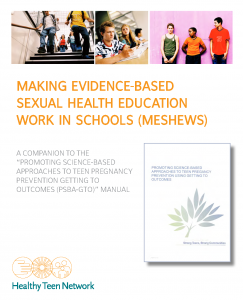
Making Evidence-Based Sexual Health Education Work in Schools (MESHEWS) is a companion to the PSBA-GTO manual, building on the PSBA-GTO process to reflect the unique needs of education agencies. In particular, it adds and tailors guidance related to the following tasks: Using data to select schools with students at disproportionate risk of teen pregnancy and…
Read moreTip Sheet: Gender, Sexuality, & Inclusive Sex Education
November 14, 2016
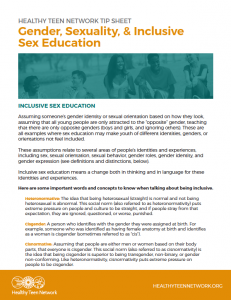
Assuming someone’s gender identity or sexual orientation based on how they look, assuming that all young people are only attracted to the “opposite” gender, teaching that there are only opposite genders (boys and girls, and ignoring others). These are all examples where sex education may make youth of different identities, genders, or orientations not feel…
Read moreProgram Fit Checklist
October 4, 2016
Fit What modifications, or adaptations, should be made to fit the program or best practices with your needs? Reviewing for fit takes the few programs you selected when you looked into best practices (usually 2-4 interventions) and checks if they match the needs and values of participating youth and the surrounding community. Distinguishing a good…
Read moreStrategic Plan to Reduce Births in Baltimore City, Executive Summary
October 3, 2016
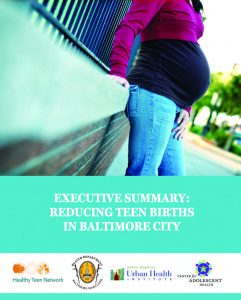
Recommendations in the strategic plan to significantly reduce Baltimore City teen birth rates include: increased access to comprehensive sex education and contraceptive services for youth; educating youth about the availability of services and what it really means to be a teen parent; expanding school based or school linked clinical services; identifying a lead agency to…
Read moreGuide for Technical Assistance Providers Working with Promoting Science-Based Approaches in Teen Pregnancy Prevention Using Getting to Outcomes
May 15, 2015
We developed a comprehensive guide that will bolster your knowledge and sharpen your skills providing technical assistance and collaborating with program staff on Promoting Science-Based Approaches in Teen Pregnancy Prevention using Getting To Outcomes® (PSBA-GTO®). The guide includes common issues TAPs experience, suggested solutions, resources, and tools so that you can effectively guide implementation partners…
Read moreTip Sheet: Characteristics of Youth-Friendly Clinical Services
April 29, 2015
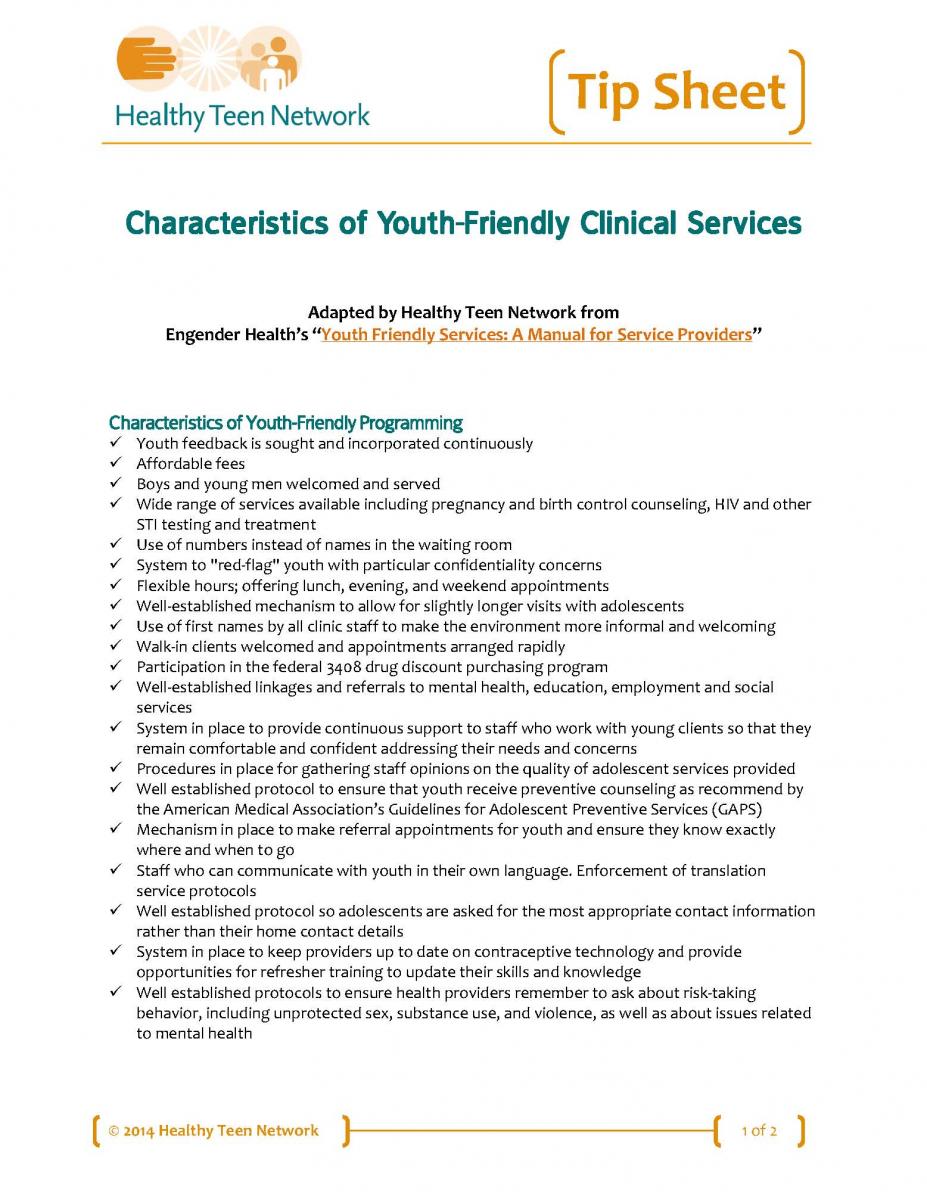
Youth-friendly services are services that all adolescents are able to obtain, and these services, which include full contraceptive coverage to avoid unintended pregnancies and STIs, should meet youth’s expectations and needs and improve their health. This tip sheet highlights characteristics of youth-friendly programming, facilities, and providers. See our other resources on youth-friendly services: Youth-Friendly Services…
Read moreReadiness for Sustaining Getting to Outcomes among Local Providers
March 11, 2015
Readiness for Sustaining Getting to Outcomes® Among Local Providers: A Discussion Guide for Technical Assistance Providers offers a series of questions designed to determine how ready an organization is to sustain an innovation. This discussion guide focuses on sustaining the Getting to Outcomes evidence-based framework, however, this tool applies best practices for sustaining any innovation…
Read moreTip Sheet: Continuous Quality Improvement (CQI)
January 12, 2015
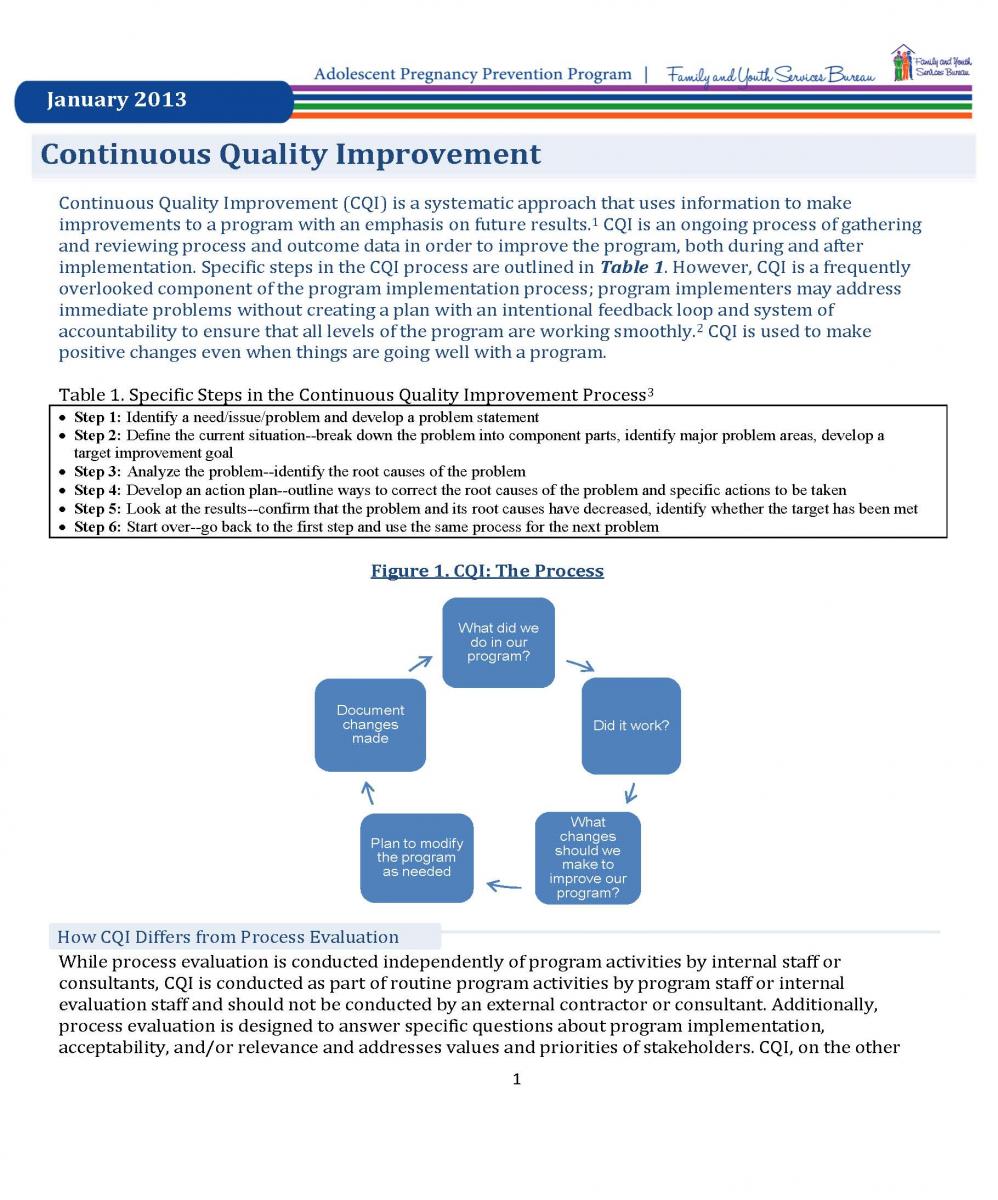
Continuous Quality Improvement (CQI) is a systematic approach that uses information to make improvements to a program with an emphasis on future results. CQI is an ongoing process of gathering and reviewing process and outcome data in order to improve the program, both during and after implementation.
Read moreShow Me the Money: Guide to Developing a Winning Grant Proposal
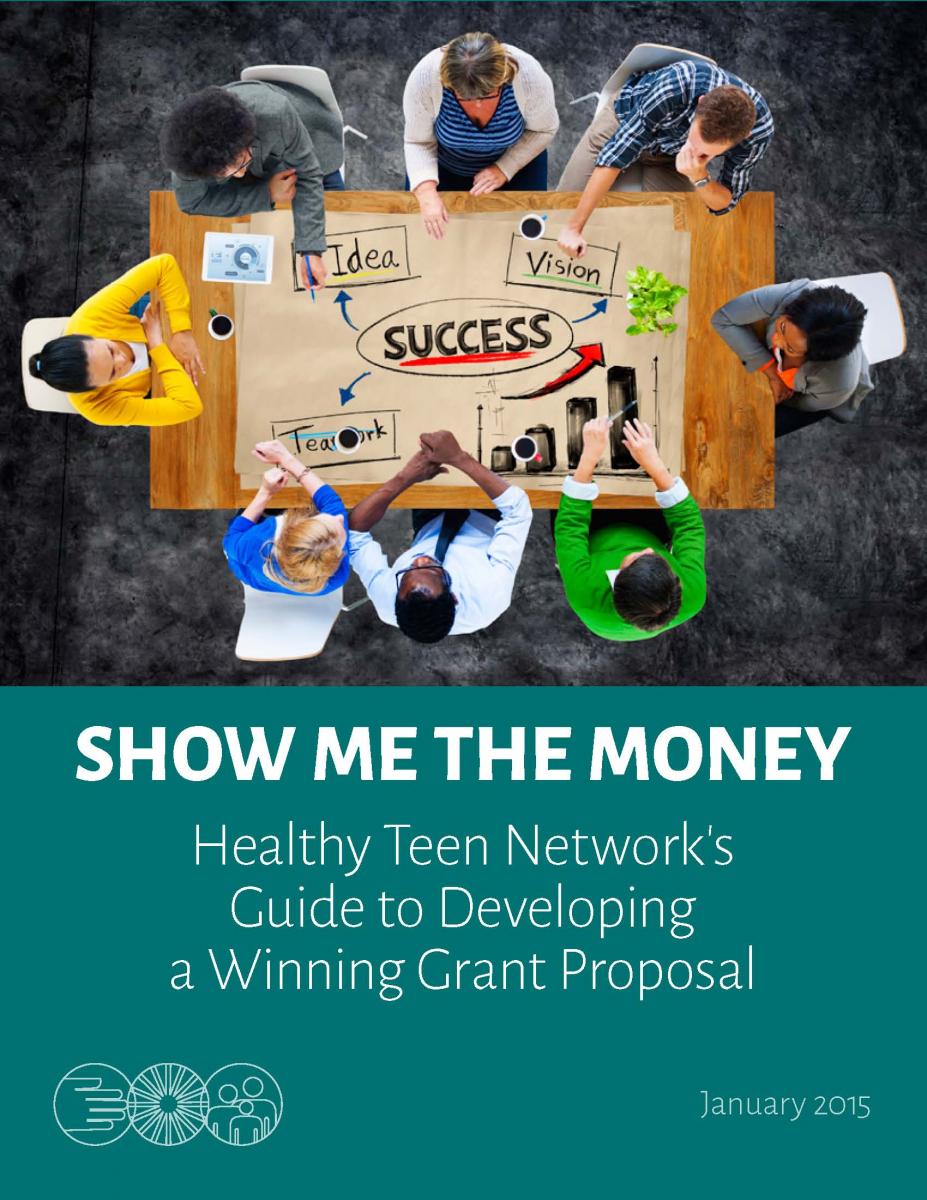
Healthy Teen Network has a record of success in securing grants and cooperative agreements, especially in the topical area of adolescent sexual and reproductive health and the service area of capacity-building assistance. We believe that sharing the process we use to prepare our responses to program funding announcements is a useful capacity-building activity for nonprofit and…
Read moreMaking Your Logic Model Work for You
October 8, 2014

This one-page resource examines the ways a logic model supports your programming from start to finish and at various levels of your organization.
Read more
